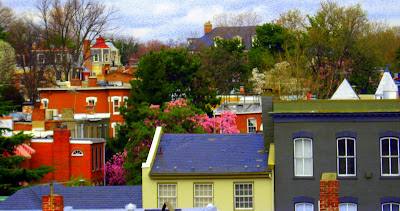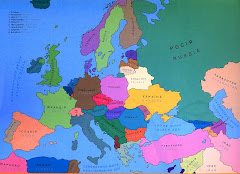 Fresh from the garden, many wonderful meals with friends, with loving attention to detail and great generosity; Luba's Easter bread and colored eggs; 12-dish Christmas eve dinners; growing , preparing, and celebrating food.
Fresh from the garden, many wonderful meals with friends, with loving attention to detail and great generosity; Luba's Easter bread and colored eggs; 12-dish Christmas eve dinners; growing , preparing, and celebrating food.
Well, I have gained about 10 pounds since being back in the States. What’s going on? It must have something to do with the American vs the Ukrainian diet.
In Ukraine, a meal starts with a bowl of soup, often borscht, the tomato,chicken or meat-based vegetable, potato and cabbage soup, sometimes made with beets, sometimes not. There’s a green variety of Borscht, too. I also like the chicken soup, strong chicken stock and lots of fresh vegetables with potatoes or noodles. After soup comes a helping of meat, a beef patty, fried liver or pork, a piece of chicken, served with potatos fixed in a variety of ways (boiled, mashed, fried). Other times we have vareneky (dumplings) or perogies (a kind of ravioli), a little fish, or stuffed peppers, which I love, especially Luba's. Valya and Nicolai make homemade chicken kielbasa (sausage), the best I ever had.
Accompanying this course, always, is a salad of some kind, picked fresh from the garden most of the year--tomatoes, onions, cucumbers, dill, garlic, peppers, eggplant, squash, carrots, and lovingly preserved mushrooms or pickles. Fresh-baked bread is a staple. The food is not overly spicey but tasty. All natural. My host moms, Valya in Chernigov, Luba and Natalia in Starobelsk, pride themselves on their fresh and natural cooking. Meals are nutritious and delicious. After dinner, a cup of tea, sometimes with dessert, cookies or cake (tort).
There are special holiday meals, too. On Christmas eve (рождественский вечер),which in Ukraine is 6 January, a beautifully set table (the best china and glasses come out of the cabinet)is filled with twelve dishes, representing the 12 apostles, and also 12 months of the year, for the more secular. The 12 dishes include the best variety of salads ever, special plates of pickled fruits, mushrooms, and eggplant; carrot salad, crab and corn salad (a favorite), beet salad, sausages and cheeses. At Easter there is special Paska bread (паска хлеб)and colored, often intricately decorated, eggs, some to fill an Easter basket to take to church to be blessed by the priest. Sumptuous and bountiful meals mark parties, birthdays, anniversaries, local and national holidays (and there are many). Of course there are grand and frequent toasts, with vodka or cognac, sometimes wine, but always with lots of food, gusto, and laughs. I’m not a great cook, but I had the best meals in Ukraine. That's probably because I hardly ever cooked, truth be told. And we rarely if ever went to restaurants in Starobelsk
What am I eating here? I’m having hamburgers and french fries (trying to limit the latter). I’m eating prepared foods, sandwiches and frozen meals, a bit heavy on beef dishes, maybe because I didn’t have a lot in Ukraine, some but not a lot. I think the portions are larger. Not good. In the morning, bagels and a bowl of cereal go down with two to three cups of coffee, with lots of sugar and milk. I’m eating more carbs, overall. In Ukraine, breakfast is usually whatever is left over from supper the night before, a little meat, vegetables, bread. I even got used to having liver in the morning. And no harm done. Lots of good restaurants in DC, too, and I'm taking advantage of them.
Okay, I see it now. Я панимаю. I understand. I ate more balanced meals in Ukraine, more natural, and healthier portions overall, than I am eating here in the States. It didn’t take long to fall back into old habits. No fresh vegetables from the garden, or from the storage cellar prepared for the winter months, or from street vendors, roadside stands, or the ever-lively bazaar, where you could always buy fresh produce from other people’s gardens.
In Ukraine you could buy produce from lots of small stores and shops, too, or the new “supermarkets” that are opening everywhere, but they are not as loaded as our giant foodstores. The selections are much smaller. Stores here are overstocked with pricey canned, frozen or preserved foods that have few nutrients but lots of calories. And there are so many choices. I was overwhelmed, when I first got back, at the many kinds of cereal to choose from; I must have spent 20 minutes just starring at the different boxes, all offering heart health and good nutrition. It was confusing, so I finally just went for the corn flakes.
When I get settled into my new home in Sylvania, Ohio, I’m going to have to pay more attention to what I am eating. This waiting around for appointments, going back and forth to Peace Corps headquarters, and seeing friends is wonderful, but it is leaving me too much free time to snack. How easy to get off balance. Things I got used to in Ukraine, living for two years with wonderful gardeners and cooks besides, are no longer an option, unless I live on a farm. I am going to have to think about my diet again. It’s my first lesson in post-Peace Corps living.



























































